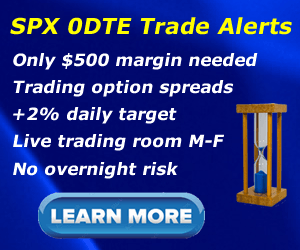What is a Futures Contract?
“A futures contract is a legal agreement, generally made on the trading floor of a futures exchange, to buy or sell a particular commodity or financial instrument at a predetermined price at a specified time in the future. Futures contracts are standardized to facilitate trading on a futures exchange and, depending on the underlying asset being traded, detail the quality and quantity of the commodity.” Source: Investopedia.com. Investopedia Definition of Futures
A futures contract is a derivative. A derivative “derives” its value from the movement in price of another instrument. A derivative bases its value on the changes in the price of the instrument that it is based upon. As an example, the value of a derivative can be linked to an instrument such as gold. Gold futures are based upon the price of the underlying gold.
Futures contracts which are bought and sold over exchanges are standardized. Standardized contracts have specifications such as: the unit of measurement, the type of settlement which can be physical or cash, the currency unit the contract for which it is denominated, the currency of the contract for which it is quoted, and the quality or grade of the particular instrument (for instance the grade of oil or fuel).
Futures contacts can either be cash settled, or may call for the physical delivery of the underlying. Some cash settled contracts at the CME Group are found here: CME Cash Settled Contracts. It is important for you to know whether the futures contract is settled in cash or the physical. If you as an investor allow a futures contract to expire, you could be looking for a place to store the physical of the commodity which the contract represents. It's important to fully understand the physical delivery futures contracts guidelines which are published at CME: CME Futures Delivery Guidelines
Futures contracts are unlike stocks
A stock has the potential to hold its value indefinitely. As long as the price of the stock does not go to zero, stock will have some value. A futures contract is finite; it will expire according to its pre-determined time. After expiration, a futures contract will no longer retain any value.
Hedgers use futures contracts as a method to manage their business
Futures are used in many different ways. At one time they were used primarily to give farmers a hedge against fluctuations in the price of the product they produced. A futures contract could give them the ability to remove some of the price risk, due to the fluctuations in the value of their product.
To illustrate, let's say we have the farmer who is a producer of corn. We also have a manufacturer who would like to use corn to manufacture canned corn.
If you are a farmer/producer, you most probably are worried about one thing – a drop in the value of your commodity, which in this case is corn. When the farmer is planting his crop, he is concerned about the price he will get for his corn when the corn ripens at a future date. The farmer wants to get the best price possible, so he can create profit for his business. He runs the risk of the price of corn dropping in price between the time he plants the corn and when it is harvested and brought to market.
How can the farmer and manufacturer use a futures contract to protect themselves?
The farmer and the manufacturer enter an agreement. This agreement is in the form of a futures contract. The farmer wants to get 4 cents per bushel for his corn, three months in the future when his crop will be harvested, which will allow him to make a profit. The farmer agrees to sell his corn to the manufacturer of canned corn. The manufacturer has determined buying corn today at 4 cents per bushel, which will be available three months in the future, will net a profit for his company.
If the price of the corn rose to 5 cents per bushel in three months, the farmer in a sense lost 1 cent. The manufacturer will be even happier because he is getting the corn for a 1 cent discount. Both parties knew this could happen. The manufacturer had a greater benefit, but both parties should be happy because they should make a profit with their original agreement. In a sense, both parties have won.
The futures contract reduced the risk of the farmer/producer and the manufacturer because they will be able to close the contract at the end of the three months at the price of 4 cents per bushel.
Investors and Speculators can use Futures Contracts
A speculator/investor can also use futures contracts to create potential profits. Speculators/investors can place educated bets on the price of the futures contract going up or down. Most futures contracts are exited before expiration. For instance, a buyer of a futures contract can sell the contract before expiration so he is no longer in the position.
Futures contracts span a wide array of different assets. For example, there is corn, wheat, coffee, oil, gas, gold, silver, bonds, and stocks.
In conclusion
It is important to understand that trading futures is not for everyone. Because futures are used for speculation as well as a portfolio hedge for investors, they can carry the potential for large losses if a trader is not fully informed of the risks involved when trading futures.
Why?
Leverage.
Leverage allows a trader to enter a position in futures that is worth much more than the up-front margin requirement. Leverage is always represented as a ratio. For example, let's say that the leverage on a particular futures position is 20:1. This means that if you have $5,000 in your trading account, you could enter a futures position that is worth 20 times that amount, or $100,000. While leverage makes it possible to trade larger positions so it may appear tempting for some newer traders, it's important to remember that leverage magnifies BOTH profits and losses. If you plan to trade futures, be sure to have a complete understanding of how your broker handles the margin and leverage requirements.
There are many strategies used by experienced traders who trade futures both for hedging and speculation, and Capital Discussions is a great place to learn. Don't delay, join today.
Feel free to comment below.


